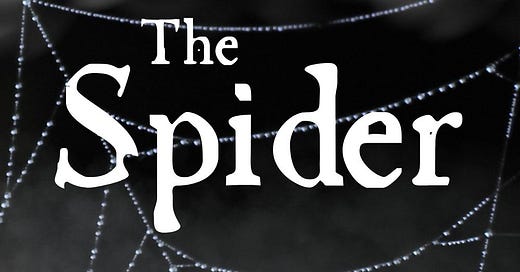We’ve just wrapped up the entire novel of The Spider. Thank you for tuning in to read it! It’s been a pleasure to share it with you.
If you have any questions about the story or the characters, drop them in the comments.
Some notes on the characters
Muldoon
My husband warned me repeatedly that Muldoon would be just like Robert Muldoon of Jurassic Park or …
Keep reading with a 7-day free trial
Subscribe to A Work Of Fiction to keep reading this post and get 7 days of free access to the full post archives.




